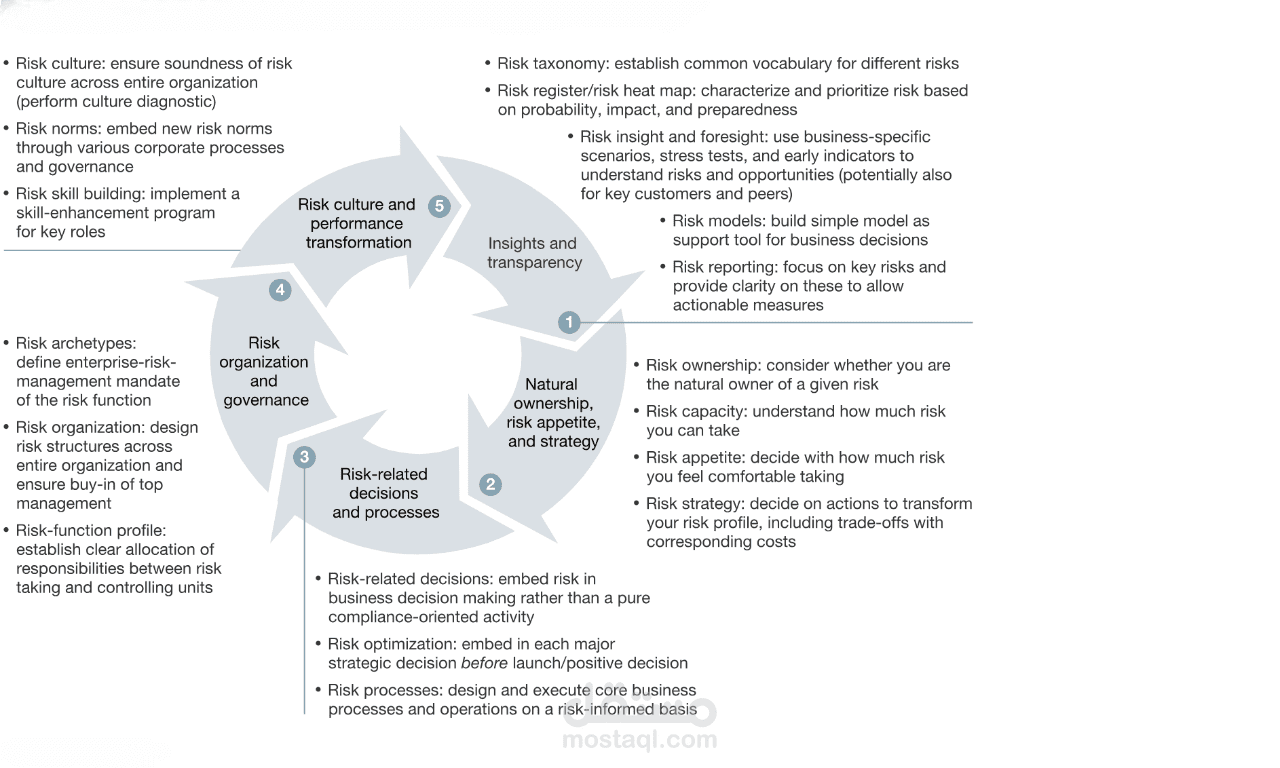مبحث علمي تم نشره بمجلة محكمة
تفاصيل العمل
The Impact of CEO Characteristics on Risk Tolerance and Corporate Performance
1. Analytical Introduction
The CEO role is fundamental (Elsheikh et al., 2024), as it determines the company's risk tolerance levels and the entire corporate performance (Chijoke-Mgbame et al., 2023).
When examining the intricate relationship between CEO role and corporate performance, one key factor that emerges as an apparently significant determinant is the CEO's risk tolerance (Akindayomi et al., 2024), since it can profoundly impact the strategic decisions made within an organization, shaping its trajectory and ultimately influencing its financial performance (Venugopal et al., 2023). CEOs with higher risk tolerance levels became inclined to pursue aggressive growth strategies, invest in innovative ventures, and engage in mergers and acquisitions that hopefully drive expansion (Li et al., 2024). On the other hand, CEOs with lower risk tolerance levels opt for conservative approaches, focusing on stability and steady growth (Huong & Vu, 2023).
In parallel, CEO characteristics such as personality traits, industry experience, and leadership perspective take an important role in determining risk tolerance levels (Nyamuyonjo et al., 2023). For example, an assertive and visionary CEO is often willing to take calculated risks in order to propel the company forward, while an almost cautious and detail-oriented CEO may prioritize minimizing risks, because he wants to ensure stability (Cho & Choi, 2024). This study penetrates the impact of CEOs' characteristics on risk-taking behavior, which significantly affects the organizational success. Through examining an appropriately diverse range that combines varied CEOs traits and behaviors, this research seeks to provide valuable insights into the dynamics of decision-making at the executive level and its consequences on corporate outcomes. It is decided that CEOs are the most eminent figures in shaping the strategic direction and decision-making processes within an ordinary company (Tang, 2023). Their individual characteristics, such as personality traits, industry experience, and leadership methods, can actually influence the risk level, which an organization is willing to undertake (Aljughaiman et al., 2024). Investigating attributes that interact with risk tolerance levels is crucial for speculating the corporate performance and establishing long-term sustainability (Budastra et al., 2023). This study addresses the problematic gap in existing literature, through identifying the nuanced relationship between CEO characteristics, risk-taking behavior, and organizational success.
2. Research Problem
While previous research studies highlighted the CEOs characteristics role in shaping corporate outcomes, there remains an obvious lack of consensus on the specific traits that impact risk tolerance levels and performance (Dai et al., 2023). The human behavior complexity and the business context dynamic nature forcefully contribute to the perplexity surrounding such an issue (Luo, 2023). After exploring an approximately wide array of CEO characteristics and assessing their effects on risk management strategies, this study managed to provide an ideally comprehensive understanding, which investigated the factors that drive decision-making at the executive level.
3. Research Questions
1.How do CEO characteristics, such as personality traits and experience, influence the risk tolerance levels within the company?
2.To what extent do different CEOs traits can significantly affect the entire corporate performance?
